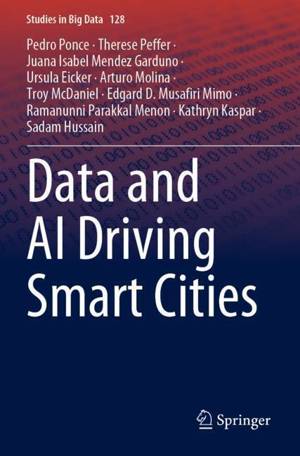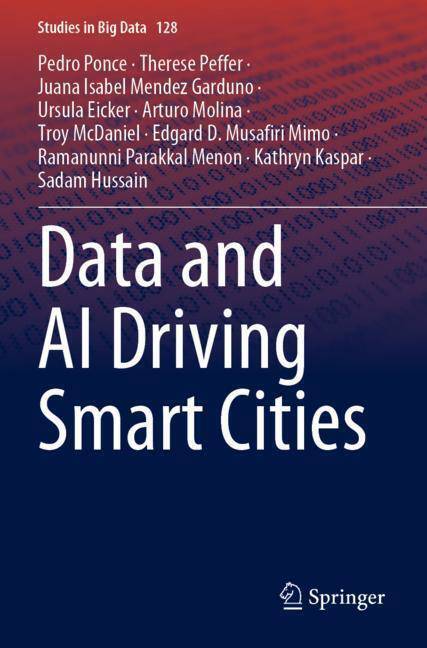
- Retrait gratuit dans votre magasin Club
- 7.000.000 titres dans notre catalogue
- Payer en toute sécurité
- Toujours un magasin près de chez vous
- Retrait gratuit dans votre magasin Club
- 7.000.000 titres dans notre catalogue
- Payer en toute sécurité
- Toujours un magasin près de chez vous
Data and AI Driving Smart Cities
Pedro Ponce, Therese Peffer, Juana Isabel Mendez Garduno, Ursula Eicker, Arturo Molina, Troy McDaniel, Edgard D Musafiri Mimo, Ramanunni Parakkal Menon, Kathryn Kaspar, Sadam HussainDescription
This book illustrates how the advanced technology developed for smart cities requires increasing interaction with citizens to motivate and incentive them. Megacities' needs have been encouraging for the creation of smart cities in which the needs of inhabitants are collected using virtualization and digitalization systems. On the other hand, machine learning algorithms have been implemented to provide better solutions for diverse areas in smart cities, such as transportation and health. Besides, conventional electric grids have transformed into smart grids, improving energy quality. Gamification, serious games, machine learning, dynamic interfaces, and social networks are some elements integrated holistically to provide novel solutions to design and develop smart cities. Also, this book presents in a friendly way the concept of social devices that are incorporated into smart homes and buildings. This book is used to understand and design smart cities where citizens are strongly interconnected so the demand response time can be reduced.
Spécifications
Parties prenantes
- Auteur(s) :
- Editeur:
Contenu
- Nombre de pages :
- 227
- Langue:
- Anglais
- Collection :
- Tome:
- n° 128
Caractéristiques
- EAN:
- 9783031328305
- Date de parution :
- 10-07-24
- Format:
- Livre broché
- Format numérique:
- Trade paperback (VS)
- Dimensions :
- 155 mm x 235 mm
- Poids :
- 447 g







